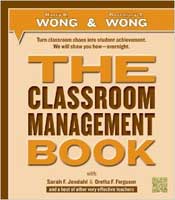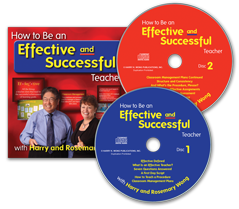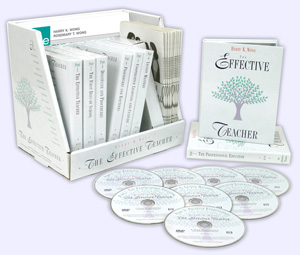
Achieving Greatness:
Alain L. Locke Elementary School-P.S. 208, Part 2
This is a school you would want to teach in. |

This is a school the kids want to be in.
P.S. 208 – Alain L. Locke Elementary School, Harlem, New York
Alain L. Locke’s success has attracted students from all over New York. Some students commute from Brooklyn and the Bronx on a daily basis. These students travel anywhere from half an hour to an hour to get to school every day—all because the parents and the students are pleased with the school. |
|
Students Come First
Alain L. Locke Elementary School teaches greatness (click here to read how in last month’s column). More important, the school achieves greatness and this is without Race to the Top funds. It’s a place where “Students and staff alike will hold themselves accountable to ‘greatness and nothing less.’”
 |
The steadfast administrators are Susan Green (right), principal, and Jackie Colon (left), assistant principal. Susan sets the tone and policy of Locke School. She states:
All decisions are determined by the needs of students, not by the convenience of adults. We can't teach mediocrity and then hold the children to achieve high standards and produce greatness. |
|
- Teachers must be reflective and transparent about what they do not know and be willing to do the work to improve in areas of weakness.
- No student deserves to suffer or be stagnated due to their teachers' inabilities
or inhibitions.
- The work we do with our students today will impact not only their futures, but ours as the adults as well.
- As educators, we made a choice to be in this field; to influence lives, and therefore, cannot afford to give children anything less than the best all of the time.
|
| Jackie is the driving force behind the culture and professional development of the school. She shares: |
| |
School-wide and classroom routines are essential to student success and ultimately student learning. A culture of consistency must be established within the first days of school. When procedures and routines are established, students will know what is being expected of them every day.
To quote The First Days of School, "A procedure is what the teacher wants done, a routine is what students do automatically." When students have clear expectations, the routines come naturally making the procedure that much easier to come across. Hence, a smoother managed classroom will result in student learning that can and will take place. |
Together, Susan and Jackie have created a haven of calm, caring, and learning for anyone who walks through the doors of Locke School.
You Are Speechless
Like so many schools in New York City, they are given impersonal numbers along with the designation of Public School, such as P. S. 208. P. S. 208 is not a KIPP school or is it a Harlem Success Academy, both very fine charter schools that have a strong media following. P. S. 208 may be a generic name and a number, but it has a personality. It has a culture. It has a name. It is P.S. 208 Alain L. Locke Elementary School, named after the first African American to win a Rhodes Scholarship.
Come with us through the doors and see what it is like to become part of the Locke School community.
You were hired the day before school opened and really thought you had reported to the wrong school in New York City. You are at Alain L. Locke P. S. 208 and all students qualify for free or reduced-price lunch, are mostly all minorities, and come from challenging home or neighborhood environments, but that is irrelevant.
As you go to your classroom you pass a sign in the hall:
 |
You think nothing of it, but you do see a silent signal used. Having come from observing classrooms in other schools during student teaching where you see chaotic classrooms and teachers yelling at students to be quiet, you hold up two fingers and your entire class comes to a hush.
You then say, “Good Morning, boys and girls” and they all respond, “Good Morning” with your name.
You are about to collapse from disbelief, but you have to hold on to your composure and look like you are the most put together teacher on the planet. |
You are so shaken with amazement you are speechless—as the class watches you for your next move. You don’t move; you’re frozen in disbelief. Finally, the students say, “Where’s the bellwork?” “Where’s our agenda?” “We had them last year.” |
You are so moved by the courtesy and the desire of the students to work—and they work hard at this school—you truly believe you were given the wrong address and ended up at the wrong school.
 |
You quickly peek in the classroom next to you to check your disbelief and see the students orderly, engaged in learning, and seemingly all know what to do. Your students are doing it, too, and you don’t know why. This is because there are school-wide procedures creating a culture of consistency at
Locke School.
(Click here to see an example of a culture of consistency in another school.)
|
Monica Burns
You watch Monica Burns, a fourth year teacher, interact with her class as she conducts a lesson. The students hold up their hands if they want to speak and while others are talking, they pat themselves on the head as a signal they concur with what has been said. There is no yelling. No frantic waving of a gaggle of hands. No students blurting out. No put-downs of other student’s responses.
 |
Even with an ADHD student or two, Monica teaches class calmly. She conducts class sitting patiently in her chair with only a flip chart to use, while there is calm and happy, yet engaged, learning in her class.
Monica teaches a procedure where the student’s tap their own head when they agree with an answer provided by
another student. |
She teaches this signal in the start of the year when they begin having whole class discussions at their seats or on the rug. These are the reasons she finds this signal effective:
- Gets less outgoing students involved in a discussion.
- Keeps the whole class active even when they are not providing an answer themselves.
- Unites students around a common purpose.
- Supports accountable talk prompts such as, "I agree with __(name)__ because . . . "
- Adds to a discussion by identifying students who do not support another student's answer. ("I noticed that you do not agree with __(name)__.")
- Combats a student's frustration from not being called on; an alternative to slamming one's hand on a desk or sighing heavily. ("Show me that you had the same
answer . . . ")
- Stops students from calling out, "I knew that!" or "I had that answer!"
- Identifies who is not paying attention; holding all students accountable for participation.
- Transferable to discussions in all subject areas.
|
 |
For instance, her class is working on teaching fact families. She asks students to describe the fact family for 3 + 4. One student offers a response:
Student: “4 + 3” (This is where the teacher looks to make sure everyone has tapped their head in agreement.)
Student: “4 – 3” (If a student does not tap |
| his or her head, the teacher follows up by asking a clarifying question.) |
Teacher: “I saw that you did not agree that 4 – 3 is part of this fact family. Could you explain your thinking?” (Student should be able to support why he or she agrees or disagrees with another student’s answer.)
The Head Tap Procedure is only one of many that keeps Monica’s classroom running smoothly.
When students work independently, Monica has procedures for quiet ways to signal when they are finished. When they are reading, they are asked to close their books and lay them on their desks. Or when they are writing, they signal by laying their notebooks open on their desks with their pencil in the fold.
She also has “Rug Time” procedures. When it is time for group discussions, students move to a rug with colored rows. They know exactly where to sit, and how to sit—with their legs crossed, facing the board.
When she wants the students’ attention, she simply says, “One-Two-Three. Eyes on Me.” And every student is attentive and focused on her.
To add to these procedures, Monica’s classroom is also organized in a way that her expectations are displayed clearly for all her students. On the blackboard, Monica has sections set aside for the Daily Schedule, the Paper Header (which is consistent school-wide), and What We’re Doing Today.
These procedures all help Monica’s classroom to run smoothly, quietly, and efficiently.
Guided Reading
A Guided Reading bulletin board is posted in one of the hallways for everyone to see—teachers, students, and parents. The board is the creation of the assistant principal, Jackie Colon.
 |
All it takes for a school to achieve success with its students are
- Administrators who know how to teach effective instruction.
- Teachers who collaborate with laser focus on student learning and achievement.
|
Guided Reading is a collaborative, school-wide initiative. All teachers are in Guided Reading groups, a system adopted by the school community when they recognized the need to improve reading by differentiating instruction according to students' ability.
Guided Reading is based on a student’s reading levels that are determined after teachers have conducted what is called a Running Record Assessment, using the Fountas and Pinnel Reading System.
A running record is a continuous formative assessment used to keep a record of and monitor each student’s oral reading progress. Running records help teachers measure students' progress, plan for future instruction, provide a way for students to understand their progress, and communicate progress to parents and the school community. Examples of running record forms can be found by Googling “running records.”
The bulletin board is used for Professional Development purposes. The board reflects what should take place at various stages within a Guided Reading session, such as:
- What is Guided Reading?
- How to group students
- How to provide Guided Reading instruction
- How to conduct Running Record assessments
Teachers are observed in Guided Reading. Then, they are taken to the board that provides a visual for the teacher. With the feedback from the observation, the teacher is validated on what is being done right and what progress the teacher needs to take next.
Click here to see the procedures used before, during, and after Guided Teaching instruction.
Visitations are made to observe teachers that are teaching Guided Reading effectively. The teachers then work collaboratively to continuously hone the procedures to better and better help the students.
They Have Achieved Academic Greatness
Locke School keeps striving for Greatness. It’s a journey that has no end with jaw dropping vistas along the way. Locke School has seen a steady increase in student performance over the past three years. On the New York State Math and English Language Arts exams, they have seen a 16% and 20% increase, respectively, in passing grades.
School Year |
Math |
English Language Arts |
2006-07 |
58.1% |
38.6% |
2007-08 |
64.5% |
43.2% |
2008-09 |
74.5% |
57.6% |
The students at Alain Locke School depend on this school and their teachers to provide the support, stability, and encouragement they may not get from other aspects of their lives. The culture at Locke School gives students the self-confidence to become successful adults.
A School with a Purpose
As we watched the students recite the Alain Locke School mantra, it was evident there was something very different about these children. They had a purpose. These students started the day with a very clear understanding of what they are about to accomplish. They walked into the building with their needs met and a purpose for the day.
What was that purpose? It is very apparent to anyone who listens:
“Today I will do more,
I will learn more,
I will be more,
Than anyone ever thought I could.
Today I will strive for GREATNESS and nothing less.”
| Susan explains that when you teach, you are modeling for children. This demands a certain level of professionalism and accountability. As a result, all of the teachers at Locke Elementary take great pride in what they do. “I teach greatness . . . and nothing less.” |
| Least you forget what your purpose is for students, click here to visit Locke’s website or click here to read their blog. Better yet, take an early morning walk through the streets of Harlem and you’ll hear the Locke School children reciting their mantra—waking up the neighborhood, waking up your senses, rejuvenating your soul, restoring your passion, and making you stand tall that you are part of the greatest profession in the world—you are a teacher. |
 For
a printable version of this article click
here. For
a printable version of this article click
here.


 »
More Gazette articles... »
More Gazette articles...



|

About Effective Teaching...
Harry and Rosemary Wong have been writing columns for Teachers.Net for over 13 years and the columns all have a distinctive style. They write about effective teachers, administrators, schools, and school districts featuring techniques that are immediately replicable and at no cost. More importantly, they work to enhance student learning. An archive of past articles can be found at the end of every column, with an abstract of all articles at the end of the most recent June column.
For over 30 years, helping teachers become effective has been the passion of the Wongs. Writing for Teachers.Net is just one of the many ways they reach out to educators with their ideas on how effective teachers improve student learning.


About Harry & Rosemary Wong...
 Harry and Rosemary Wong are teachers. Harry is a native of San Francisco and taught middle school and high school science. Rosemary is a native of New Orleans and taught K-8, including working as the school media coordinator and student activity director. Harry and Rosemary Wong are teachers. Harry is a native of San Francisco and taught middle school and high school science. Rosemary is a native of New Orleans and taught K-8, including working as the school media coordinator and student activity director.
Harry Wong has been awarded the Horace Mann Outstanding Educator Award, the National Teachers Hall of Fame Lifetime Achievement Award, the Science Teacher Achievement Recognition Award, the Outstanding Biology Teacher Award, and the Valley Forge Teacher's Medal. He was selected as one of the most admired people in education by the readers of Instructor magazine. Rosemary was chosen as one of California's first mentor teachers and has been awarded the Silicon Valley Distinguished Woman of the Year Award. She was also honored as a Distinguished Alumnus from her alma maters, Southeastern Louisiana University and Louisiana State University.
Harry and Rosemary have been awarded the Upton Sinclair Award and were nominated for the Brock International Prize in Education. They have built and sustain a school in the jungles of Cambodia.
The Wongs are the most sought after speakers in education today, booked two years into the future. Their presentations are practical, offering a common sense, user-friendly, and no-cost approach to managing a classroom for high-level student success. Over a million teachers worldwide have heard their message. In spite of their heavily booked schedule, Harry and Rosemary have agreed to write this monthly column so that more people can hear their message.


How They Develop Effective Teachers...
Harry and Rosemary Wong are committed to developing effective teachers, one teacher at a time.
To do this, they have formed their own publishing company, of which Rosemary is the CEO.
THE Classroom Management Book is what everyone has been waiting for. It is an exhaustive extension of Unit C on classroom management in The First Days of School.
 |
- Turn chaos into student achievement
- Reduce behavior issues; increase learning
- Step-by-step plans to a well-managed classroom
- 50 procedures in detail
- 40 QR codes with additional resources
- 320 pages in full color
- Complete first days of school plans
- Suitable for all grades, all subjects, all teachers
- Costs no money to implement
|
How to Be an Effective and Successful Teacheris an audio CD set that was recorded live before 800 teachers in St. Louis. Listen as they walk you through classrooms that hum with learning and share how you can replicate the same success in your classroom. In 2 hours and 40 minutes, Harry and Rosemary can transform you into a very effective and successful teacher at no cost!
This presentation has transformed the lives and teaching success of hundreds of thousands of teachers.Learn how to
 |
- Begin the school year with a plan
- Start class immediately
- Have a well-organized and structured classroom
- Reduce discipline problems
- Have students who are engaged and working
- Teach procedures and responsibility
- Maximize classroom instructional time
- Use lesson objectives so students know what they are to learn
- Use rubrics to assess for student learning
- Deal with at-risk students
- Improve student learning and achievement
|
 |
The Wongs have written The First Days of School, the best-selling book ever in education. Over 3.8 million copies have been sold. It is used in 120 countries, 2,114 colleges, and most every new teacher induction program. The fourth edition has been translated into five foreign languages and includes:
- An additional chapter on procedures
- A new chapter on assessment with rubrics.
- A new chapter on Professional Learning Teams
- A new chapter for administrators on implementation
- Additional information in Going Beyond Folders
- A new DVD, Using THE FIRST DAYS OF SCHOOL, presented by Chelonnda Seroyer
|
 |
The Wongs have also produced the DVD series, The Effective Teacher, winner of the Telly Award for the best educational video of the past twenty years and awarded the 1st place Gold Award in the International Film and Video Festival. |
 |
They also have a successful eLearning course, Classroom Management with Harry and Rosemary Wong. The course can be taken in private at the learner's convenience. The outcome of the course is a 2 inch binder with a personalized Classroom Management Action Plan.
This Action Plan is similar to the organized and structured plan used by all effective teachers. Details for the classroom management course can be seen at www.ClassroomManagement.com. |
|
You can hear Harry Wong LIVE on a set of CDs, called
How to Improve Student Achievement, recorded at one
of his many presentations. He invites you to steal from him the secrets of effective teaching for all grade levels. |
|
Never Cease to Learn has the power to transform your
attitude and your life. In this DVD, Harry shares his journey on the road to success and tells listeners how to become the educators they were meant to be. |
When the books, video series, CD, DVD, and eLearning course are used together, they form the most effective professional development training tool for producing effective teachers. Staff developers and administrators who would like to know how to implement the aforementioned book, video series, and CD are encouraged to consult the book, New Teacher Induction: How to Train, Support, and Retain New Teachers. Information about these products can be found by visiting the publisher's website at www.HarryWong.com.
Helping you produce effective teachers is our passion.
|

Harry & Rosemary Wong Columns on Teachers.Net...
If you spot a link that appears to be out-of-date, please alert us at webmaster@teachers.net!
- A Grateful Goodbye After 15 Years (Jun 2015)
- Love, Marriage, and Babies, Oh My! (May 2015)
- Retention Rate Is 100 Percent (Apr 2015)
- Teacher Effectiveness and Human Capital (Mar 2015)
- Training Teachers to Be Effective (Feb 2015)
- Making Deals Is Ineffective (Dec 2014 / Jan 2015)
- Retrieving and Carrying Electronic Devices (Nov 2014)
- Sharing to Succeed (Oct 2014)
- How a University Prepares Its Students (Sep 2014)
- Effective Teaching (Aug 2014)
- Your Future Is in Your Hands (June/July 2014)
- The Classroom Management Book (May 2014)
- When Students Succeed; Teachers Succeed (April 2014)
- Teaching New Teachers How to Succeed (March 2014)
- Execute and Praise (February 2014)
- Shaping a Solid Foundation (Dec 2013 / Jan 2014)
- The Most Misunderstood Word (November 2013)
- How to Start Class Every Day (October 2013)
- Prevention: The Key to Solving Discipline Problems (September 2013)
- Planning, Planning, Planning (August 2013)
- Are You THE One? (June / July 2013)
- Practical Examples That Work (May 2013)
- A Disability Is Not a Handicap (Apr 2013)
- Totally Inexcusable (Mar 2013)
- Be Proud of Public Education (Feb 2013)
- Structure Will Motivate Students (Dec 2012 / Jan2013)
- Orchestrating the Classroom (Nov 2012)
- The Lasting Impact of Instructional Coaching (Oct 2012)
- Learning, Laughing, and Leaving a Legacy (Sep 2012)
- Twenty-two, First Year, and Legit (Aug 2012)
- A Master Teacher of Teachers (June/July 2012)
- Where Going to School Means Success (May 2012)
- A Nationally Celebrated High School (Apr 2012)
- The Highest Rated School in New York City, Part 2 (Mar 2012)
- The Highest Rated School in New York City, Part 1 (Feb 2012)
- The Importance of Culture (Dec 2011 / Jan 2012)
- You Can Teach Classroom Management (Nov 2011)
- Seamless, Transparent, and Consistent (Oct 2011)
- Coaching Teachers to Be Effective Instructors (Sep 2011)
- How a Principal Creates a Culture of Consistency (Aug 2011)
- Graduation Begins in Your Classroom (June/July 2011)
- The Inspiration of a Mother (May 2011)
- How to Be an Effective Leader (Apr 2011)
- Learning Objectives: The Heart of Every Lesson (Mar 2011)
- Even Shakespeare Had Structure (Feb 2011)
- Effectiveness Defined: It's Not a Mystery (Dec 2010 / Jan 2011)
- Surviving Without a Principal (Nov 2010)
- Achieving Greatness: Locke Elementary School, Part 2 (Oct 2010)
- Teaching Greatness: Locke Elementary School, Part 1 (Sep 2010)
- Effective from the Start (Aug 2010)
- Ten Year Summary of Articles, 2000 to 2010 (June/July 2010)
- The Success of a Culture of Consistency (May 2010)
- Training Teachers to Be Effective (Apr 2010)
- Learning to Teach, Teaching to Learn (Mar 2010)
- Turning Teaching Dreams into Reality (Feb 2010)
- Dreams and Wishes Can Come True (Dec 2009 / Jan 2010)
- Success in a State Controlled School (Nov 2009)
- Inner City Is Not An Excuse (Oct 2009)
- Exceeding All Expectations (Sep 2009)
- Teachers Are the Difference (Aug 2009)
- Nine Year Summary of Articles, 2000 to 2009 (Jun/Jul 2009)
- Teachers Are the Greatest Assets (May 2009)
- The Tools for Success (Apr 2009)
- Assessing for Student Learning (Mar 2009)
- To Be an Effective Teacher Simply Copy and Paste (Feb 2009)
- The Sounds of Students Learning and Performing (Dec 2008)
- A School That Achieves Greatness (Nov 2008)
- Boaz City Schools: Professional Learning Teams (Oct 2008)
- It Was Something Close to a Miracle (Sep 2008)
- A Computer Teacher Shows the Way (Aug 2008)
- Eight Year Summary of Articles, 2000 to 2008 (Jun/Jul 2008)
- An Amazing Kindergarten Teacher (May 2008)
- Schools That Beat the Academic Odds (Apr 2008)
- Academic Coaching Produces More Effective Teachers (Mar 2008)
- Coaches Are More Effective than Mentors (Feb 2008)
- Wrapping the Year with Rap! (Dec 2007/Jan 2008)
- The Floating Teacher (Nov 2007)
- Taking the Bite Out of Assessment—Using Scoring Guides (Oct 2007)
- Ten Timely Tools for Success on the First Days of School (Sep 2007)
- First Day of School Script - in Spanish, Too! (Aug 2007)
- Seven Year Summary of Articles, 2000 to 2007 (Jun 2007)
- Effective Teachers End the Year Successfully (May 2007)
- Training Gen Y Teachers for Maximum Effectiveness (Apr 2007)
- Classroom Management Applies to All Teachers (Mar 2007)
- Students Want a Sense of Direction (Feb 2007)
- Rubrics in Two College Classes (Dec 2006/Jan 2007)
- How to Write a Rubric (Nov 2006)
- Assessing Student Progress with a Rubric (Oct 2006)
- A 92 Percent Homework Turn-in Rate (Sep 2006)
- Effective Teachers Are Proactive (Aug 2006)
- Five Year Summary of Articles (Jun 2006)
- Hitting the Bulls Eye as a Beginning Teacher (May 2006)
- They're Eager to Do the Assignments (Apr 2006)
- The Success of Special Ed Teachers (Mar 2006)
- What Teachers Have Accomplished (Feb 2006)
- Fifty Years Ago, The Legacy (Dec 2005/Jan 2006)
- The Emergency Teacher (Nov 2005)
- Classroom Management Is Not Discipline (Oct 2005)
- A Successful First Day Is No Secret (Sep 2005)
- The Most Important Factor (Aug 2005)
- Four Year Summary of Articles (Jul 2005)
- Improving Student Achievement Is Very Simple (Part 2) (Jun 2005)
- Improving Student Achievement Is Very Simple (Part 1) (May 2005)
- Never Cease to Learn (Apr 2005)
- His Classroom Is a Real Life Office (Mar 2005)
- The Power of Procedures (Feb 2005)
- The First Ten Days of School (Jan 2005)
- PowerPoint Procedures (Nov/Dec 2004)
- The Saints of Education (Oct 2004)
- How Procedures Saved a Teacher's Life (Sep 2004)
- How to Help Students with Their Assignments (Aug 2004)
- Three Year Summary of Articles (Jun/Jul 2004)
- His Students are All Certified (May 2004)
- What to Do When They Complain (Apr 2004)
- A Well-Oiled Learning Machine (Mar 2004)
- The Effective Teacher Adapts (Feb 2004)
- How to Start a Lesson Plan (Aug 2003)
- Applying for a Teaching Job in a Tight Market - Part 2 (Jun/Jul 2003)
- Applying for a Teaching Job in a Tight Market (May 2003)
- The Effective Substitute Teacher (Apr 2003)
- A First Day of School Script (Mar 2003)
- How to Retain New Teachers (Feb 2003)
- No Problem With Hurricane Lili (Dec 2002)
- A Class Size of 500 (Nov 2002)
- Effective Practices Apply to All Teachers (Oct 2002)
- Dispensing Materials in Fifteen Seconds (Sept 2002)
- How To Start School Successfully (Aug 2002)
- Teaching Procedures Is Teaching Expectations (June - July 2002)
- $50,000 to Replace Each Teacher (May 2002)
- Even Superintendents Do It (Apr 2002)
- Impossible, No Job Openings? (Mar 2002)
- A Stress Free Teacher (Feb 2002)
- A Most Effective School (Jan 2002)
- Van Gogh in Nine Hours (Dec 2001)
- The Effective Teacher Thinks (Nov 2001)
- How a Good University Can Help You (Sep 2001)
- How to Motivate Your Students (May 2001)
- How to Recognize Where You Want to Be (Apr 2001)
- What Successful New Teachers Are Taught (Mar 2001)
- A Journey of the Heart (Feb 2001)
- The Miracle of Teachers (Jan 2001)
- It's Not the Students. It's the Teacher. (Dec 2000)
- The First Five Minutes Are Critical (Nov 2000)
- How to Start a Class Effectively (Oct 2000)
- The Problem Is Not Discipline (Sep 2000)
- There Is Only One First Day of School (Aug 2000)
- Applying for Your First Job (Jul 2000)
- Your First Day (Jun 2000)

Related Resources & Discussions on Teachers.Net...
|
|

















